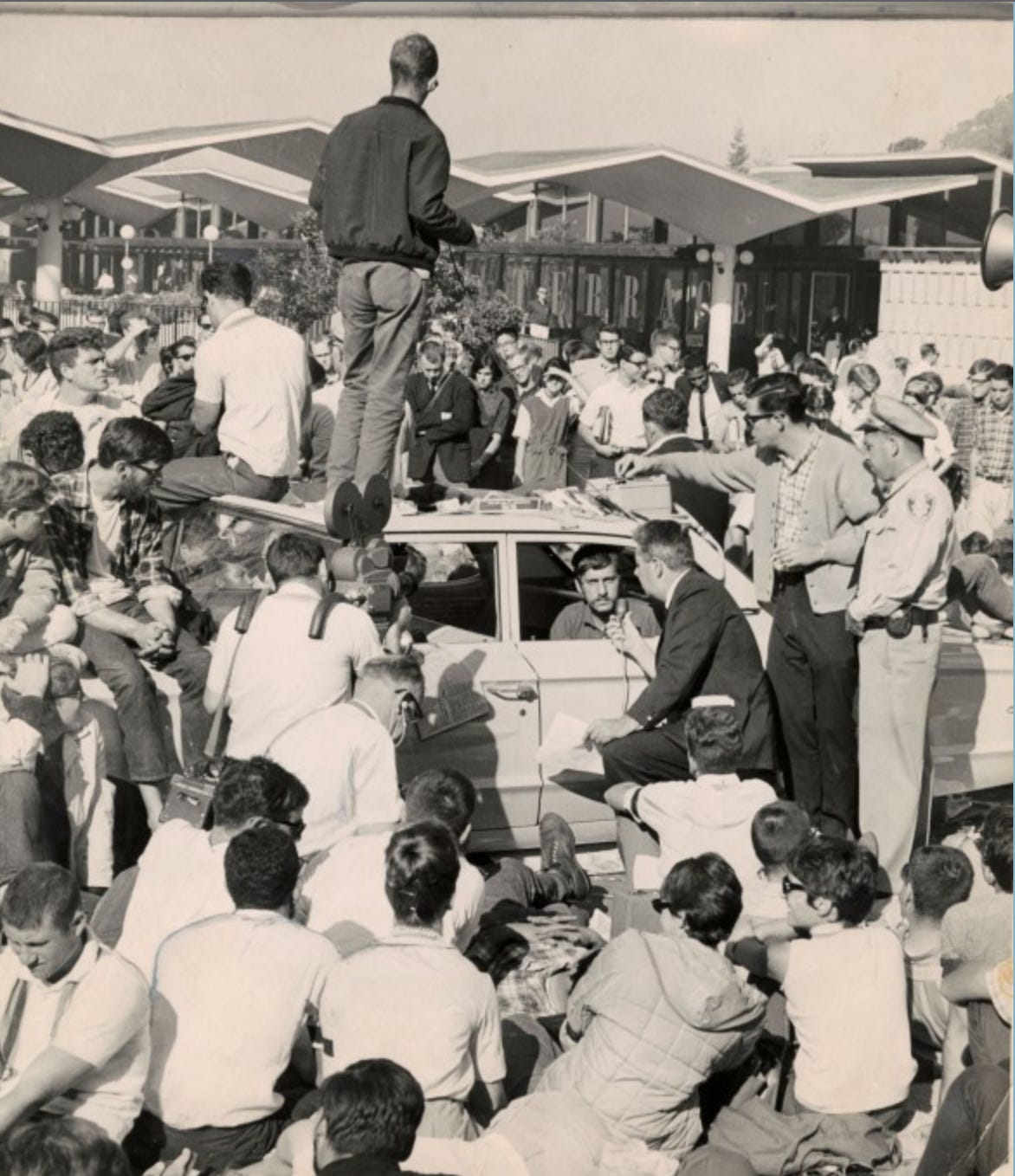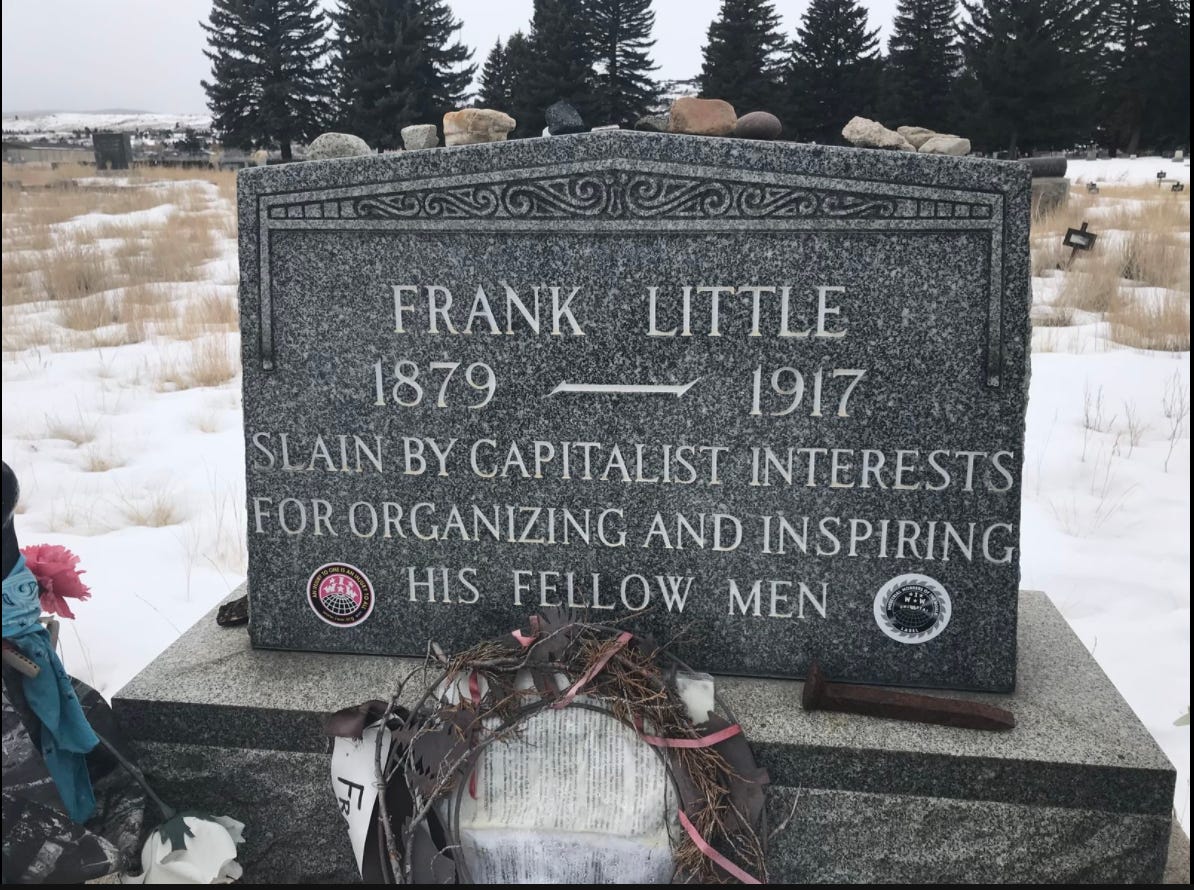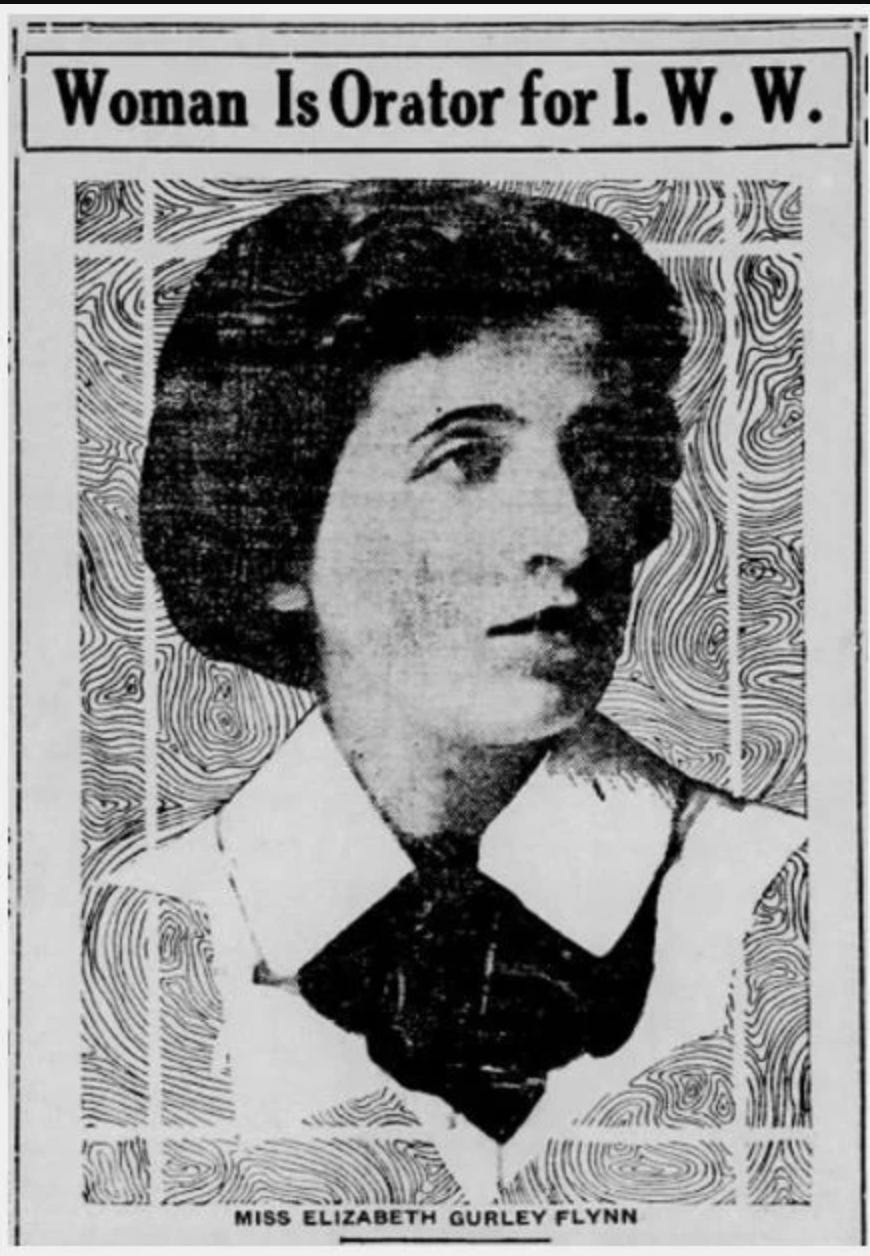
Quick update (Feb. 6): I wrote this on Friday, February 2nd, thinking it would be safe to use the Joe Rogan debate as a case study for a broader pattern, as I was convinced that discourse was on its last legs. However, rumors of death were exaggerated, etc., etc. As is often the case with ardent “free speech defense” fights… Surprise! There was way more N-word uttering and Holocaust denial than was previously reported. That is neither surprising nor does it change anything I write below (the end result of “free speech for its own sake” is always a race to the lowest common denominator) but it felt like it deserved an acknowledgment.
In 1963, Jack Weinberg, a White graduate student at UC Berkeley, started volunteering with the Congress of Racial Equality. Along with peers from across the country, he followed CORE’s call to travel South to provide support and security to voter registration efforts. On October 1st, 1964, Weinberg was staffing the CORE table on Berkeley’s Sproul Plaza— attempting to both raise money and recruit volunteers for the cause. At the time, Berkeley had banned political fundraising by any group other than the official Democratic and Republican clubs. Weinberg was in violation of the rule, so some campus cops rolled up and asked him to present his student ID. Weinberg refused and the cops arrested him, attracting an angry crowd.
Weinberg’s arrest would kick off what would be known as the Free Speech Movement at Berkeley, a mass civil disobedience campaign against the University’s limit on political activities as well as a requirement (typical of the Red Scare era) that faculty members take a loyalty oath. It would end up stretching on for multiple months and would inspire several mass protests— the first time that civil disobedience tactics being utilized in the South spread to majority White, Northern spaces. Eventually, the students succeeded not only in overturning the University’s ban on political activities but also in galvanizing the nascent anti-Vietnam War movement.
In 2020, Joe Rogan, a wealthy and famous podcaster/comedian/UFC commentator/actor/former-host-of-a-show-where-people-ate-gross-things-and-let-spiders-crawl-on-them, received 100 million dollars from Spotify in exchange for exclusive rights to his podcast. A staunch libertarian, Rogan took Spotify’s money and continued to utilize his show as a platform for ideas he either agreed with or found “interesting.” These ideas, amongst many others, have frequently included transphobia and vaccine skepticism. As a result, artists such as Neil Young and Joni Mitchell have tried to pressure Spotify to drop Rogan, which the company appears to have no desire to do.
Believe me, I am sorry that I am currently writing about Joe Rogan! Truly! I bet that you are very tired of hearing about Joe Rogan! I bet that Joe Rogan is tired of hearing about Joe Rogan and he literally named his podcast “The Joe Rogan Experience!” I would much rather talk about the free speech movement at Berkeley. Speaking of which, have you ever heard the famous speech that Mario Savio gave on the Sproul Hall steps?
There's a time when the operation of the machine becomes so odious — makes you so sick at heart — that you can't take part… And you've got to put your bodies upon the gears and upon the wheels, upon the levers, upon all the apparatus, and you've got to make it stop. And you've got to indicate to the people who run it, to the people who own it, that unless you're free, the machine will be prevented from working at all.
Oh hell yeah! Bodies in the gears of odious machines! Righteous stuff. Also, did you know that, after years of activism, Weinberg would become a steelworker and active union leader in Gary, Indiana? Such cool folks, those Berkeley free speech-ers.
You know who else was cool? Elizabeth Gurley Flynn. Back in the early 20th Century, she and her fellow Industrial Workers of the World organizers led a series of Free Speech Fights in Western cities where the bosses and cops had been really roughing up any workers who tried to organize. Flynn and the other Wobblies would set up what felt like a never-ending series of soapboxes in towns like Missoula and Spokane, flooding the jails with speaker after speaker until the authorities had to give in and let them organize. Now that’s what I call a free speech fight!
Unfortunately, I do need to talk about the whole L’affair Rogan, not to weigh in on it, but because it reveals the brokenness of our current conversation about free speech. As is all too frequent these days, we’re stuck in a dumb dance between bad faith conservative claims of victimization and smarty-pants, technically-correct-but-unnecessarily-accepting-the-terms-of-the-debate responses on the Left.
Here’s the dance.
STEP ONE: A person does or says something that upsets the Left ( Rogan uncritically interviews guests who claim that vaccines are bad and that vaccine mandates are basically the Holocaust).
STEP TWO: There is an attempt from the Left to hold the person who did the upsetting thing accountable (Young and Mitchell launch a pressure campaign to get Spotify to sever their contract with Rogan).
STEP THREE: The extremely well-oiled conservative outrage machine kicks into gear, citing this as another grave and terrible example of the Intolerant Left, a Left that Used To Believe In Free Speech But Is Now Bent On Cancellation and Thought Police Autocracy (“Joe Rogan is not even a conservative— he supported Bernie and likes UBI and universal healthcare! Plus, he’s super into drugs— that’s like a liberal thing, right? Also, he never actually said ‘don’t take vaccines’ or ‘be mean to trans people’ or anything like that… and yet, ‘they’ are coming for him… and if you let them, you will be next! Be afraid… but first, please subscribe to my Substack for Truly Tolerant Critical Thinkers!”).
STEP FOUR: The Left makes a lot of points that, once again, are not wrong, but that are reactive and that fail to fundamentally transform the terms of the debate in any meaningful way (“This isn’t a First Amendment issue because it’s not the government, it’s a private corporation, plus it’s not a free speech issue either, because it’s not about his right to speech, but the money and platform Spotify are providing… and regardless this is a ‘yelling fire in a crowded theater situation’…”).
STEP FIVE: We all move to the next shiny object. (In this case, we are already very mad that school boards in Texas and Tennessee are banning books. And that IS a very good source for our anger- especially when the books in question are famous ones about the Holocaust! The problem is, if our recent history as a guide, we will huff and puff about that for a very short while— primarily to signal that, unlike those bad Texans and Tennesseans, we love ALL books— but we likely won’t translate that anger into a long-term organizing plan to shift the balance of power in those states).
For something that we’re all supposed to care so deeply about, Americans do an absolutely terrible job of talking about free speech. We talk about the acute act of “stating your individual opinion” as if that alone is some sort of magic freedom potion. A large portion of that comes from the Right (disproportionally the White Guy Right) because one of the only discernible ways that there has been any societal transformation in the last few decades is that “sometimes people get to speak up now when you’ve said something wildly offensive.” This, in turn, has elevated “getting to still say the offensive thing and still get to be considered cool and good” into a major political project. The Left deserves a good chunk of blame for this as well, though. We wouldn’t be here if not for White liberalism’s fifty-year crawl from a politics of collectivism to one of individualism.
This is how you end up with the conservative argument that “the Left used to stand for free speech, but now THEY’RE the censors,” which actually means that “White hippies stood for free expression and saying whatever you want— they were all about Jim Morrison being lewd and cool and still getting to be on network TV, but now they’re a bunch of uncool squares who are mean to me.”
The irony, though, is that the Left was once able to effectively fight for Free Speech, precisely because they resisted framing it in narrow, individualistic terms. The beauty of the Free Speech Movement was that it wasn’t a bunch of privileged college students saying “hey, the Civil Rights Movement is cool— let’s co-opt their language and pretend that our individual ability to curse out the President is as important as Black freedom.” Quite the contrary— the Free Speech Movement was rooted in a deep understanding that “speech” in this country didn’t occur across a flat playing field. The students wanted to raise their own voice not just for the hell of it, but in support of a larger and more urgent freedom struggle.
The same was true of the I.W.W.'s free speech fight a couple of generations previously— Flynn and Big Bill Haywood and Frank Little didn’t care about free speech because they loved the sound of their own voice. Their right to speak only mattered as a proxy for the repressed voices of the poor, immigrant workers in towns fully run by the bosses, a compliant press, and the full power of both private and state goon squads.

Whenever we debate “free speech” as if it’s just a question of individual freedom of expression, we make two major mistakes. The first is that we implicitly reinforce the idea of America as a place where we have an equal ability to not only speak and be heard but to have our dignity respected as we do so. This flattened view of speech pretends we don’t live in a country where all women who raise their voice (particularly on the internet) are subject to horrific harassment1, and where the problem is exponentially worse for women of color generally and Black women specifically. It pretends we don’t live in a world where corporations are given outsized voices compared to unions, where transphobic bigots are given more government protection than trans and non-binary people themselves and, of course, where the forces of government suppression have always fallen hardest on those who dare call for Black or Indigenous liberation.
The second mistake is that we pretend that the purpose of free speech is individual self-actualization and not the process of creating a more free society for all. It’s no coincidence that throughout history, the greatest governmental attacks on free speech haven’t been against individual eccentrics with wild opinions. When speech has truly been under attack, it took the form of municipal laws banning abolitionist organizing, or of the Red Scare as a hammer to bludgeon the labor and civil rights movement or of the targeted cruelty of Cointelpro. Free speech only matters (and is therefore only truly a threat) when it asks the larger questions about who is and isn’t free and what it will take to shift that balance
Now, I can think of a whole lot more people whose individual opinions are more worth $100 million than Joe Rogan’s, but the bigger issue in that fight isn’t that a large corporation is propping up a guy with dangerous public health takes. It’s that we’re all sicker and less well-informed because we live in a country where both public health AND access to information is privately outsourced rather than publicly managed and regulated. The goal shouldn’t be to debate the Joe Rogans of the world in the marketplace of ideas, to defeat them on the strength of our devastatingly Sorkinesque rhetoric. It should be to ensure that when we do speak (and assemble and write and organize…) we’re challenging the assumption that a free, just marketplace is any more real than a huckster podcaster’s snake oil remedies.
But that’s beside the point. We’re already done talking about Joe Rogan. I’m not writing this to have any influence on that debate. I’m writing because there will be another cancel culture/free speech dust-up a week from now, a month from now, or a year from now. Dave Chappelle will release a stand-up special where he’s “just asking questions” about whether there actually are any Black trans people or if those are all White trans people in disguise. A conservative student at Oberlin will claim that they were literally tarred and feathered because they were caught thanking a troop for their service. A GOP activist from Idaho Falls will see a Bureau of Land Management truck outside their daughter’s school and write a Facebook post about how “Black Lives Matter (BLM) are now parking their indoctrination vehicles ON SCHOOL PROPERTY.”
In each case, I actually don’t have much of an opinion on whether or not you weigh in on the ensuing controversy, nor whether you do so in a way that “cancels” or “holds the perpetrator accountable.” What I do care about is how much of our energy we spend jumping from one individual fight to another. Even for those of us with fewer societal restrictions on our speech, our voices aren’t a fully renewable resource. We’ve got all the time in the world, but none to spare. So, rather than debating other privileged people’s immediate right to speak, let’s hold both ourselves and others to a higher standard. The question should never be “Do I have the right to say this?” but “What are the implications of me saying this? Does it help us all get free? Or does it make some of us freer at the expense of keeping others down?"
I would love to live in a world where the only stake in a “free speech” debate is whether or not each of us individually gets to share whatever wild opinion is on our mind that day. Believe me, when that world is true, I have a LOT of thoughts to share (most of them are about condiments, gas station pizza,2 how all Lin Manuel Miranda songs sound the same3 and how funny it is when rappers give instructions to their producers at the beginning of songs4). Until then, don’t take the bait and allow our discussion about free speech to pretend that we’ve already arrived at the level playing field. Enlarge the debate. Focus on whose voice is never included and what powerful voices behind the scenes are pulling the strings. Sadly, you can’t control whether or not the forces of hate and reaction get to have a voice. As long as there is a power structure to protect, we can count on them showing up, guns blazing. What you can control is how effectively you raise your own voice not just on your own behalf, but in service of us all getting free together.
End Notes:
If you’d like to go deeper on all this, I highly recommend Ellis Cose’s The Short Life and Curious Death of Free Speech
Want to learn more about the I.W.W.’s organizing in the early 20th Century West? Check out the Death In The West podcast. The first season was centered around Frank Little’s murder in Butte and the broader forces surrounding it. It’s the best. Their new season is about skyjacking, which doesn’t have anything to do with this newsletter, but is also cool.
Oh jeez, remember when I wrote an essay about a Fox Nation show and I said “I hope I remember to cancel my free trial?” Well, guess who didn’t do that and has now paid for an entire year of Fox Nation? I’m not happy about it, but here’s my promise moving forward: If you donate to The Barnraisers Project (and, in doing so, help support this newsletter as well as some very cool organizing and training work), I promise that your money will not be used on anything dumb like that ever again. Thanks for considering.
This week’s song: Joan Baez “All My Trials” (live footage from the Free Speech Movement).5
This link is to an absolutely exceptional (but extremely painful) essay by Aubrey Hirsch that was published this week at Men Yell At Me. I can’t recommend it highly enough.
For those of you who read my 2021 Awards Issue, yes, I have tried a couple of other gas station slices this year and no, nothing comes close to Casey’s General Store. And yes, I read the Lyz Lenz gas station piece. It was great. This will officially be remembered as the newsletter where I liked to Men Yell At Me twice.
This short aside is going to get more responses than anything I’ve ever written, I promise.
You know who has always been a real one? Joan Baez.





Maybe Free Speech is the important fight in and of itself. Citizenry as a whole - and not just fragments of it - will be marginalized if corporations, big tech, politicians and academics are simply allowed to frame speech into tidy little corridors of “acceptable” and “unacceptable”, “offensive” and “tolerant” - thereby promoting and reflecting a single narrative. Anyone stifling decent and opposing viewpoints is invariably doing so to avoid having to engage in debate and not, as they claim, to prevent the spread of “harmful disinformation”. If you have a winning argument, it will survive scrutiny regardless of how much ‘opposing information’ is thrown at it. The problem is, true debate takes time and patience and runs the risk of narratives being exposed as lies - and dishonest people will shy away from this process. As Augustine of Hippo has stated, “The truth is like a lion; you don’t have to defend it. Let it loose; it will defend itself”
Silence NO speech, whether individual or collective. Cancel cancel culture! It is weakness manifest as bullying.